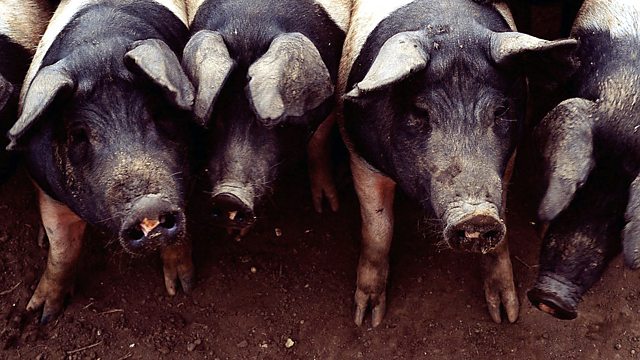
Livestock emissions, Argentine farmers tackle climate change, Glyphosate vote, Lynx escape.
Agricultural scientists from Rothamsted Research have been looking at how to reduce livestock farming's carbon footprint by studying the emissions levels of individual animals.
With the world climate change talks, COP 23, taking place in Germany this week and next, we've been looking at the issue of agriculture's carbon footprint and what's being done to tackle the problem.
One big issue in terms of reducing farming emissions is methane. Cows (notoriously) emit this greenhouse gas, and some claim the solution is to simply stop eating beef or dairy products.
Over the years there have been various studies on ways to reduce emissions by changing feed - but scientists at Rothamsted Research have taken a different approach. They've been analysing the actual emission levels of individual cows - as Emma Campbell found out, when she met up with researcher Graham McAuliffe at the centre's North Wyke site in Devon.
Farming in South America is often labelled as particularly environmentally damaging, with forests pulled down to provide grazing for beef cattle. But 90% of farmers in Argentina now practice no-till - which involves no ploughing, planting seed straight into the soil and growing cover crops, which put nutrients back into the soil. This means less carbon is released through soil being disturbed, and less fuel used by farm machinery.
Anna Hill went to this week's AgriTech REAP conference, where she met up with Maria Giraudo - who set up the charity Aspresid, which encourages Argentine farmers to practise no-till. She was also joined by Professor Ian Crute, a leading UK expert in sustainable agriculture.
EU Member States are once again rolling up their sleeves and preparing to cast their votes on whether the world's most widely used weedkiller should be relicensed. Back in October, the European Commission's Standing Committee on Plants, Animals, Food And Feed were set to vote on whether to renew glyphosate's license - which expires in December - for another 10 years. But they didn't even get to the voting part, because it was evident there would be no qualified majority either in favour or against extending the license. Glyphosate is a weedkiller, controversial because it's been linked with causing cancer in humans - campaigners want it banned, farmers say it's vital to healthy crop production.
A new resolution proposing a shorter, five-year renewal will be voted on tomorrow: as before, the UK is planning to vote in favour of continuing glyphosate's license. However it could still end in deadlock, unless one of the larger member states that carries more weight in a vote changes its position from last time.
Rewilding is back in the headlines, after a Eurasian lynx escaped from Borth Wild Animal Kingdom in Aberystwyth just over a week ago. The young female cat is being blamed for killing sheep in the Ceridigion countryside - farmers say that shows that plans to re-introduce the lynx elsewhere in the UK are unworkable.
Charlotte Smith speaks to farmer Owen Jenkins, who spotted the lynx in his fields and subsequently found seven of his flock dead; and Dr Paul O'Donoghue, the Chief Scientific Advisor at the Lynx UK Trust.
Last on
Broadcast
- Thu 9 Nov 2017 05:45大象传媒 Radio 4 FM
Podcast
-
![]()
Farming Today
The latest news about food, farming and the countryside

